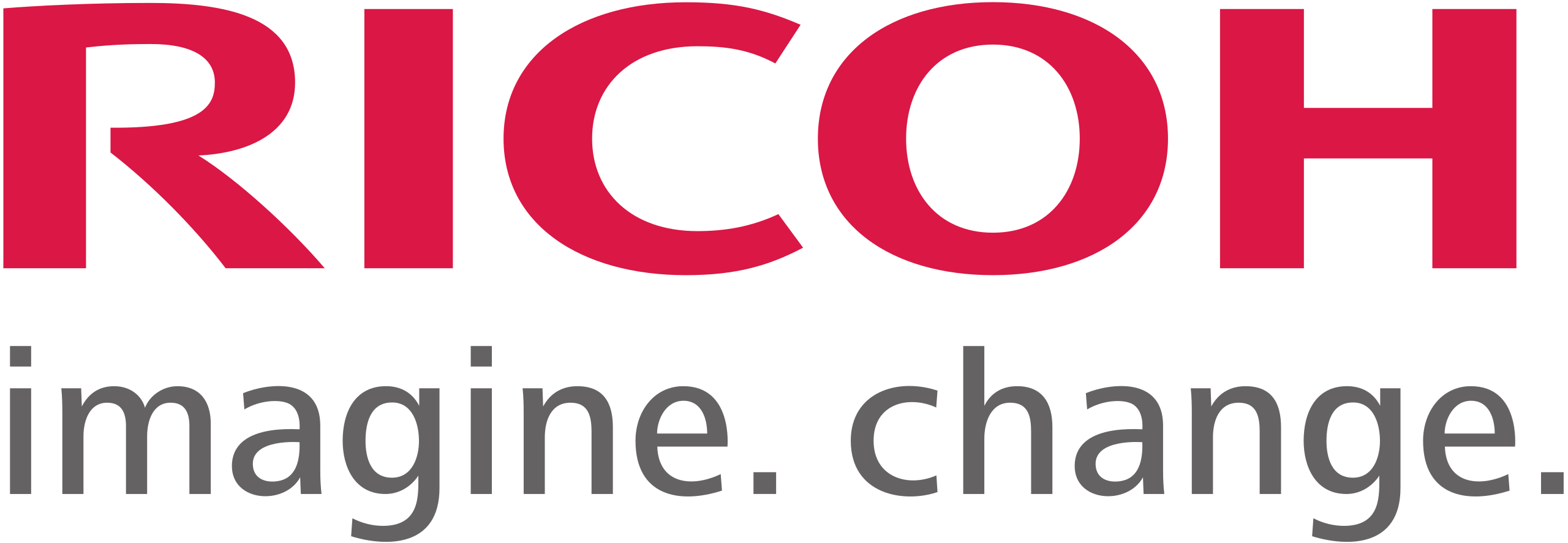9 min read
Document Management Solutions Can Enhance Any Company, Including Yours
By:
Kali Mogg
on
December 16, 2021
Updated: August 8, 2024

All businesses need to operate more efficiently and effectively while saving costs. Doing so means harnessing technology to improve how well a company, and its employees, operate.
So many businesses use documents and files to manage information, approvals, and day-to-day tasks. Improving how these documents are managed is the core goal of a document management solution system. Better document management can greatly improve a company’s efficiency, transforming its capabilities and potential.
What Is a Document Management Solution?
A document management solution uses a system for organizing, storing, securing, and sharing business documents and tasks. A document management solution (DMS) provides the automated software that achieves these tasks.
A DMS involves more than simply cloud storage and file management. It allows for automated workflows and enterprise content management, giving users a great tool for boosting efficiency and finding and using digital documents with ease.
DMS examples include eFile Cabinet, Compliance Quest Document Management, and even Google Drive.
Can Small Companies Benefit from Document Management Software and Solutions?
Document management solutions isn’t just for larger organizations. Digital filing and file share capabilities are a universal need for companies large and small. Automated workflows and documentation control can benefit small companies looking to streamline business processes and move away from paper based systems.
If you’re not sure where to start with selecting and implementing a DMS, Standley Systems has experience guiding companies large and small through the process. By consulting with an expert from our team, Standley can learn more about your company’s specific needs and determine suitable document management software.
The Many Benefits of Management Solutions for Digital Documents
Process Efficiency – Efficiency is a key feature of file management. Organized electronic files are easy to find, store, share, and use, cutting down the time and work it takes to look up and deal with physical files.
Time Saving – It takes only a few clicks and keywords to find cloud based documents and files. File sharing can be done with a link, which is even faster than using email attachments and much quicker than relaying physical folders.
Convenience – DMS files are instantly accessible through a web browser or connected computer. Digital filing is as easy as clicking through a few menus. Sharing files is instantaneous. Convenience is a given with any document management system.
Stability – Tangible paper documents might seem more stable. But are they? Paper can be prone to damage, smudges, and fading. Cloud based documents are securely backed-up, keeping sensitive documents safe and on hand.
Security – It’s true that digital documents can be opened up to cyberthreats. But consider that digital file management allows for many added layers of security, such as password protection, permissions, and encryption. For sensitive documents, these access control and security measures are a key feature.
So How Do These Benefits Apply to Real-World Scenarios?
Every company and small business will have different needs for its document management software and protocols. But the benefits described above are universally applicable.
Management solutions benefit everyone. Improved efficiency and access to information means cost-savings on time and labor needed to complete a project. It means policies, plans, instructions, SOPs, production designs, approval forms, and all matter of other electronic documents will be readily available to review, update, and share.
Real-world examples of document management solutions and benefits are near limitless. Conversely, what company will not benefit from increased efficiency, cost-saving, and information sharing?
Components of a Great Document Management Solution
It’s clear that DMS augment workflows and efficiency. But how can you tell, exactly, how a new system benefits your company? Look for these components and results of management solutions for digital documents.
- Automatically capture documents and instantly index, classify, and distribute documents to the right teams, clients, and other groups.
- Meet compliance requirements to more easily manage audit trails and liability issues using secured documents and tracked opening and sharing features.
- Direct key workflows digitally by automating processes to connect documents, tasks, and people to quickly get information to the right teams.
- Maintain full control by tracing every step of a document’s lifecycle and seeing who viewed or modified information.
- Quick recovery from disaster to help you bounce back if disaster strikes thanks to digitized file types and back-up systems in place.
- Move to the cloud and take advantage of the security, scalability, and ease-of-use that cloud based document systems offer
- Improve collaboration by removing document silos and separate management systems and replacing them with an enterprise content management that all employees and teams can use, putting everyone on the same page.
The ways in which document management solutions can enhance a company and team are numerous. But the areas upon which it can benefit are even more extensive. Here are some examples:
- Centralized databases
- Revision tracking, reviews, and approvals
- Collaboration/vault
- Workflow integration and management
- Integrated change management
- Release management
- Document-based training
- AI-powered search
- Mobile access
- Enterprise-grade security
What Problems Can Document Management Software Solve?
By now it’s clear that document management solutions can boost any company’s efficiency and productivity. Being able to control documentation and the flow of information makes all employees’ jobs easier.
Beyond improvements, it’s worth looking specifically at the problems that DMS solve. Now, every company will have its own problems and bottlenecks in file management, access control, and business processes. But there are also universal issues that DMS alleviates.
1. Unable to Find the Correct Document
Any good DMS greatly improves records management and documentation control. This means that electronic documents can be easily located when needed. If you can’t find a file when it’s needed, productivity goes down. DMS can include automated workflows for document tagging and naming conventions so that files can be easily found.
2. Having to Merge Documents Manually
Automatically merging documents is important when working with different documents and file types, which most companies do. Employees waste lots of time trying to compare documents and look for changes or seeing if updates have been made. A DMS can cut down on this cross-referencing time and can automatically merge documents.
3. Working On an Old Version of a File
It’s always frustrating to find out that you’ve been working on an older version of a file or if you’re stuck wondering if updates have been made. Documents can be open to user errors, where people send the wrong version of a document or share non-compatible file types.
For matters of regulatory compliance, it’s especially important to be working with current files. Here, a DMS can ensure that everyone’s working with the correct, current version of a document. Users can see when a document was last changed and who made the changes, cutting down redundant work on files that aren’t current.
4. Productivity Loss
Documents and files ultimately convey information and data. Harnessing and updating this information is key to so many jobs. But all the time spent looking for digital documents or paper documents can really add up. Further, attaching documents to emails or, even worse, having to deal with document scanning and relaying paper based materials takes time, too.
File sharing should be faster and easier, and with a DMS, it is. Links for sharing files are much more easily relayed.
5. Frustrated Employees
It should be no surprise that when the problems described above occur frequently, employees grow frustrated. Those with a close eye for detail might notice when a document is out of date or using the wrong file type. But such discrepancies should be detected by a good DMS, without having to rely on employee diligence.
Document management solutions exist to make employees and companies work more effectively, quickly, and, yes, easily. They’re designed to remove unnecessary barriers to business processes and information flow, making everyone’s work, and jobs, better.
How Does a Business-Tier DMS Differ from a Consumer-Grade DMS?
Consumers often went paperless before organizations did, but DMS for consumer use and business use differs in capabilities and scope. Although a document management system does not include the word “enterprise” in its name, like enterprise content management, DMS is still an enterprise-grade technology. This means it can integrate tasks and abilities to affect processes across a whole company.
Many consumer-level document management products enable only storing and access of documents and files. For example, cloud based storage systems primarily let users:
- Store documents
- Compress files
- Share files and information
Since these features are simple extensions of a file server, some people think an electronic document management system is similar to these technologies. However, a DMS offers greater flexibility and capabilities.
For instance, the only security measures that most consumer-grade technologies offer is password and maybe two-factor authentication. Even if DMS is compared to an encrypted flash drive, DMS security features are still comparably stronger. The flash drive, to further the example, still relies on physical media that’s prone to damage or misplacement.
DMS, on the other hand, accommodates compliance from the organizational standpoint using:
- Built-in network security features
- Organizationally streamlined workflows
- Encrypted file types
These security features can protect sensitive information both internally and externally and typically go above and beyond available consumer security features.
Further, DMS helps to retrieve the correct documents and data very quickly and enables automated backup to data centers and cloud storage. The breaching of corporate or organizational information becomes exceedingly difficult with a DMS. Backup features also ensure information continuity in the event of natural disasters or office break-ins, whether occurring in a central or remote location.
While the typical document management system is more expensive than consumer-grade technologies, its features benefit entire organizations, not just individuals.
Consider This When Converting to a DMS
Switching from a paper based system or switching document management systems is a process. However, management solutions need to account for key concerns. For many companies large and small, compliance requirements, security, and costs are all top concerns. Let’s break down each.
Regulatory Compliance with Your Industry’s Regulations
Oil and Gas – The oil and gas industry needs remote document management solutions that permit easy mobile access and use. Many energy extraction sites are in distant locations or off-shore, underscoring the importance of reliable remote connection via a mobile app. Further, government compliance requirements are strict with energy companies, meaning the right documents and info must always be on hand.
Healthcare – The healthcare industry has real concerns about patient privacy and HIPPA laws. Regulatory compliance involving patient records management means upholding privacy laws and rules. The added security and access control with a DMS is crucial for many healthcare facilities.
Finance – Financial firms are often awash in paper documents, many of which contain sensitive information detailing clients’ finances. A good DMS improves digital filing through secure storage and transfer of electronic documents. Transparency and audit trails are more easily achieved digitally, as well.
Other industries have their own unique concerns, but in virtually every industry, DMS can provide solutions.
Matters of Security
For any company, security matters. While document management security benefits have been discussed, convenience is another key feature.
Cybersecurity software and tools are sometimes implemented piecemeal, which works for some companies. Adding a new DMS to your company, however, often includes built-in security capabilities such as encryption, access control, and automatic backups. These included features, in turn, save companies time from having to research and discuss individual security features.
DMS Costs
Implementing a DMS system comes with costs. But management solutions can also lead to long-term savings. A paperless work environment, over time, produces cost-savings with reduced office and labor expenses.
Even more so, a DMS enables more efficient workflow, saving on employee time and costs. While every company’s ROI will differ, document management involves company-wide change, which lends itself to long-term solutions.
Ready to Convert or Launch a New DMS?
Moving from a paper based system to a digital system [Link to DMS providers blog post] will involve significant document scanning and other transformations. However, the efficiency, cost-reductions, and secure, sustainable office practices that result from launching or upgrading your DMS outweigh any disruptions.
Any and every company must be on the lookout for ways to improve operating efficiency and reduce costs while making employees more productive and happier. DMS can achieve all of those qualities.
Standley Finds the Best-Fit DMS for Your Company
The options and range of capabilities that document management systems offer are vast and, yes, confusing. Knowing which DMS will be the best fit for your company’s needs can be difficult to discern. And while any DMS provides certain necessary features, your company has specific needs and work styles.
Let us help. The information technology experts at Standley Systems can work with your team to discern the best plan and system for you. We offer a free consultation to help find an optimal enterprise content management solution. Now’s the time to bring your company and its employees up to speed and let the many benefits of a DMS transform how you operate.
Find out more about how Standley can help with your document management needs by contacting our team.












